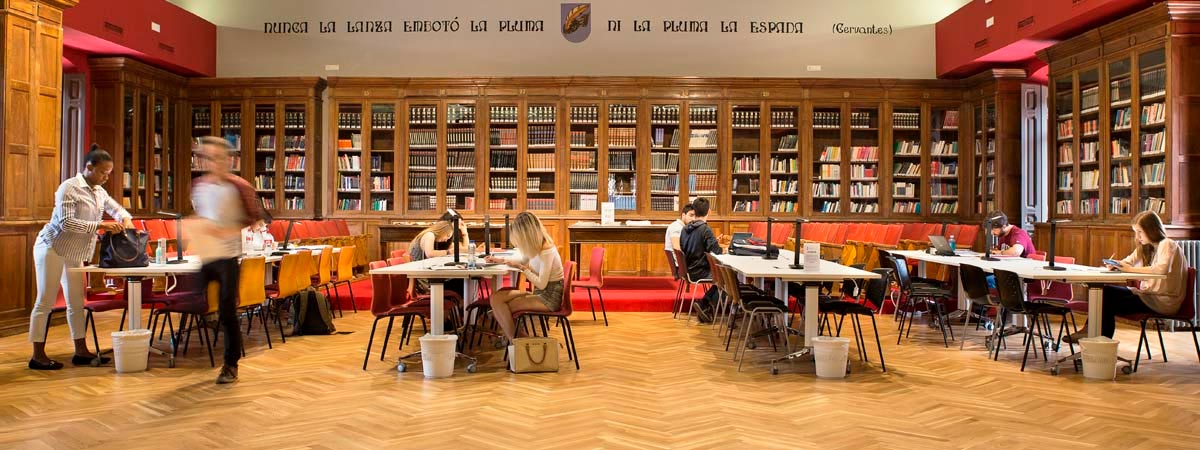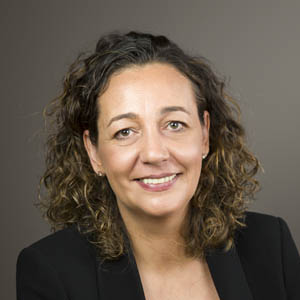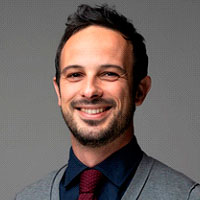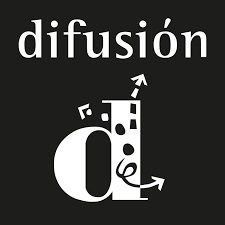Education and Cognitive Processes

Innovation and research in the professional field of education
Given the fundamental role of education in promoting the cohesion and inclusion of people with different profiles, contexts and abilities (Education and Training Monitor, 2017), the Doctorate in Education and Cognitive Processes emerges with the objective of providing a multidimensional and suitable answer for attention to diversity.
The program focuses its scientific activity on a single line of work aimed at generating basic and applied knowledge that allows delving into individual differences, to give an educational response really focused on an understanding of the multidimensionality of diversity. This line of research is defined as "Cognitive processes and individual differences in education", and arises from the convergence of thematic areas close to Education, such as Psychology and Cognitive Neuroscience, and the interest in giving an educational response to diversity based on scientific knowledge by studying individual differences.
Access to the Doctorate Programme
Organization
Professors
 Claudia Poch
ProfesoraProfessor
Claudia Poch
ProfesoraProfessor
 Jon Andoni Duñabeitia Landaburu
ProfesorProfessor
Doctor en Psicología por la Universidad de La Laguna, Licenciado en Psicopedagogía por la Universidad de Deusto y Diplomado en Magisterio por la Universidad del País Vasco. Es experto en neurociencia cognitiva del lenguaje. Es Profesor Director e Investigador Principal de la Facultad de Lenguas y Educación de la Universidad Nebrija donde dirige el Grupo de Investigación LAELE, y además es científico asociado al Basque Center on Cognition, Brain and Language (BCBL), donde durante los últimos años ha dirigido el Grupo de Investigación Multilingual Literacy. También es miembro del panel de profesores de posgrado de diferentes universidades nacionales e internacionales, y forma parte de la Junta Directiva de la Sociedad Española de Psicología Experimental. Desde que inició su carrera investigadora, ha publicado más de 80 artículos en las principales revistas científicas internacionales, y es miembro del consejo editorial de varias revistas científicas con impacto internacional. Ha actuado como Investigador Principal en varios proyectos de investigación financiados por el Gobierno Vasco, el Gobierno Provincial de Gipuzkoa y el Gobierno de España. Además, participa activamente en el equipo de investigación de diferentes proyectos internacionales financiados por diferentes agencias europeas. Su trabajo de investigación se centra en el estudio científico de los aspectos relacionados con la adquisición de lenguas nativas y extranjeras a lo largo del ciclo vital, explorando el papel de la alfabetización multilingüe y el rol de la alternancia de lenguas como medio de instrucción.
Jon Andoni Duñabeitia Landaburu
ProfesorProfessor
Doctor en Psicología por la Universidad de La Laguna, Licenciado en Psicopedagogía por la Universidad de Deusto y Diplomado en Magisterio por la Universidad del País Vasco. Es experto en neurociencia cognitiva del lenguaje. Es Profesor Director e Investigador Principal de la Facultad de Lenguas y Educación de la Universidad Nebrija donde dirige el Grupo de Investigación LAELE, y además es científico asociado al Basque Center on Cognition, Brain and Language (BCBL), donde durante los últimos años ha dirigido el Grupo de Investigación Multilingual Literacy. También es miembro del panel de profesores de posgrado de diferentes universidades nacionales e internacionales, y forma parte de la Junta Directiva de la Sociedad Española de Psicología Experimental. Desde que inició su carrera investigadora, ha publicado más de 80 artículos en las principales revistas científicas internacionales, y es miembro del consejo editorial de varias revistas científicas con impacto internacional. Ha actuado como Investigador Principal en varios proyectos de investigación financiados por el Gobierno Vasco, el Gobierno Provincial de Gipuzkoa y el Gobierno de España. Además, participa activamente en el equipo de investigación de diferentes proyectos internacionales financiados por diferentes agencias europeas. Su trabajo de investigación se centra en el estudio científico de los aspectos relacionados con la adquisición de lenguas nativas y extranjeras a lo largo del ciclo vital, explorando el papel de la alfabetización multilingüe y el rol de la alternancia de lenguas como medio de instrucción.
 Nuria Camuñas Sánchez-Paulete
ProfesoraProfessor
Doctora en Psicología por la UCM. Máster en Intervención en la Ansiedad y el Estrés (UCM). Licenciada con grado en Psicología (UCM). Directora del Departamento de Educación de la Facultad Lenguas y Educación. Profesora de la Facultad de Lenguas y Educación en grado y postgrado. Docente de distintos cursos de formación y máster, sobre ansiedad, emociones y educación, estrés, modificación de conducta y dificultades del aprendizaje. Autora de distintas publicaciones y presentaciones en congresos relacionadas con procesos cognitivos, emoción y educación, prevención y control del estrés, etc. Miembro del grupo de investigación en Cognición, Educación y Diferencias Individuales (CEDI) de la Universidad Antonio de Nebrija y del grupo de investigación Cultura, Sociedad y Educación, de la Universidad Camilo José Cela. Otras líneas de investigación: Cognición, Emoción, Salud y Educación.
Nuria Camuñas Sánchez-Paulete
ProfesoraProfessor
Doctora en Psicología por la UCM. Máster en Intervención en la Ansiedad y el Estrés (UCM). Licenciada con grado en Psicología (UCM). Directora del Departamento de Educación de la Facultad Lenguas y Educación. Profesora de la Facultad de Lenguas y Educación en grado y postgrado. Docente de distintos cursos de formación y máster, sobre ansiedad, emociones y educación, estrés, modificación de conducta y dificultades del aprendizaje. Autora de distintas publicaciones y presentaciones en congresos relacionadas con procesos cognitivos, emoción y educación, prevención y control del estrés, etc. Miembro del grupo de investigación en Cognición, Educación y Diferencias Individuales (CEDI) de la Universidad Antonio de Nebrija y del grupo de investigación Cultura, Sociedad y Educación, de la Universidad Camilo José Cela. Otras líneas de investigación: Cognición, Emoción, Salud y Educación.
 María Vaillo
ProfesoraProfessor
María Vaillo
ProfesoraProfessor
 Jorge González Alonso
ProfesorProfessor
Jorge González Alonso
ProfesorProfessor
 Bernhard Angele
ProfesorProfessor
Bernhard Angele
ProfesorProfessor
 Teresa Rossignoli
ProfesoraProfessor
Teresa Rossignoli
ProfesoraProfessor
 Sara Uceda Gutiérrez
ProfesoraProfessor
Licenciada en Psicología y doctora en Fisiología por la Universidad de Sevilla. Actualmente coordina el “Master de Cognición y Emoción” en contextos educativos de la Universidad Nebrija. Ha participado en 6 proyectos de investigación financiados, y ha publicado en revistas de reconocido prestigio.
Sara Uceda Gutiérrez
ProfesoraProfessor
Licenciada en Psicología y doctora en Fisiología por la Universidad de Sevilla. Actualmente coordina el “Master de Cognición y Emoción” en contextos educativos de la Universidad Nebrija. Ha participado en 6 proyectos de investigación financiados, y ha publicado en revistas de reconocido prestigio.
 Alice Foucart
ProfesoraProfessor
Alice Foucart
ProfesoraProfessor
 Victor Echeverry
ProfesorProfessor
Victor Echeverry
ProfesorProfessor
 Ana Isabel Beltrán Velasco
ProfesoraProfessor
Ana Isabel Beltrán Velasco
ProfesoraProfessor
 María Dolores Nieto
ProfesoraProfessor
María Dolores Nieto
ProfesoraProfessor
 Inmaculada Pedraza
ProfesoraProfessor
Inmaculada Pedraza
ProfesoraProfessor
 Manuel Perea Lara
ProfesorProfessor
Doctor en Psicología por la Universidad de Valencia, es Catedrático en el departamento de Metodología de la Universidad de Valencia. Su investigación se ha centrado, aunque no exclusivamente, en el estudio sistemático de los procesos de lectura. Cuenta con 4 sexenios de investigación y más de 100 artículos publicados en revistas de Q1, incluyendo Psychological Review; Trends in Cognitive Sciences; Behavioral and Brain Sciences; Psychological Science; Developmental Science; Biological Psychology; Cognition; Learning & Instruction, etc. Ha recibido el premio de la sociedad española de psicología experimental (SEPEX) durante 2015 al mejor artículo. Este artículo, en Trends and Cognitive Sciences (IF=15.402), está en la lista de “highly cited articles” del “InCites Essential Science Indicators”.
Manuel Perea Lara
ProfesorProfessor
Doctor en Psicología por la Universidad de Valencia, es Catedrático en el departamento de Metodología de la Universidad de Valencia. Su investigación se ha centrado, aunque no exclusivamente, en el estudio sistemático de los procesos de lectura. Cuenta con 4 sexenios de investigación y más de 100 artículos publicados en revistas de Q1, incluyendo Psychological Review; Trends in Cognitive Sciences; Behavioral and Brain Sciences; Psychological Science; Developmental Science; Biological Psychology; Cognition; Learning & Instruction, etc. Ha recibido el premio de la sociedad española de psicología experimental (SEPEX) durante 2015 al mejor artículo. Este artículo, en Trends and Cognitive Sciences (IF=15.402), está en la lista de “highly cited articles” del “InCites Essential Science Indicators”.
 José Antonio Hinojosa Poveda
ProfesorProfessor
Licenciado en Psicología y Doctor en Neurociencia por la Universidad Autónoma de Madrid. Acreditado como Profesor Titular en Psicología(ANECA, 2018), es profesor contratado doctor en la Universidad Complutense de Madrid. Su investigación ha sido financiada mediante la concesión de cinco proyectos de investigación por parte de distintos ministerios y organismos oficiales, de los que he sido investigador principal. Desde el año 2013 coordina el grupo de investigación denominado “Affective Neurolinguistics and Cognition” (https://www.ucace.com/bml/afneco/).
José Antonio Hinojosa Poveda
ProfesorProfessor
Licenciado en Psicología y Doctor en Neurociencia por la Universidad Autónoma de Madrid. Acreditado como Profesor Titular en Psicología(ANECA, 2018), es profesor contratado doctor en la Universidad Complutense de Madrid. Su investigación ha sido financiada mediante la concesión de cinco proyectos de investigación por parte de distintos ministerios y organismos oficiales, de los que he sido investigador principal. Desde el año 2013 coordina el grupo de investigación denominado “Affective Neurolinguistics and Cognition” (https://www.ucace.com/bml/afneco/).
 Teresa Gonzalez-Ramírez
ProfesoraProfessor
Teresa Gonzalez-Ramírez
ProfesoraProfessor
 Silvia Carrascal
ProfesoraProfessor
Silvia Carrascal
ProfesoraProfessor
 Ana Baciero Lama
ProfesoraProfessor
Ana Baciero Lama
ProfesoraProfessor
 Eneko Antón
ProfesorProfessor
Eneko Antón
ProfesorProfessor
 Ramón Pujol Farriols
ProfesorProfessor
Ramón Pujol Farriols
ProfesorProfessor
 Jason Rothman
ProfesorProfessor
Jason Rothman
ProfesorProfessor
 Thomas Lachman
ProfesorProfessor
Thomas Lachman
ProfesorProfessor
 Cristina Sanz
ProfesoraProfessor
Cristina Sanz
ProfesoraProfessor
 Vincenzo Romei
ProfesorProfessor
Vincenzo Romei
ProfesorProfessor
 Pablo Gómez
ProfesorProfessor
Pablo Gómez
ProfesorProfessor
Comisión académica
- Presidente: Claudia Poch
(Coordinadora del Programa) - Secretario: Jon Andoni Duñabeita
(Investigador Principal) - Vocal: Nuria Camuñas
(Directora Dpto. Educación)
Academic committee
- President: Claudia Poch
(Program Coordinator) - Secretary: Jon Andoni Duñabeita
(Lead Researcher) - Member: Nuria Camuñas
(Director of the Education Dept.)
Perfil investigador
Centro de Investigación de Ciencia CognitivaResearch profile
Nebrija Research Center in CognitionEmployability
Career Opportunities
Agreements
Direct collaborations
Other collaborations
Activities in Education and Cognitive Processes
Visit all the Activities of the School of Language and Education
Language and Education Week
Speakers of the Ministry of Education, Instituto Cervantes, Google and the British Council participated in the various events of Nebrija University's Education Week.


